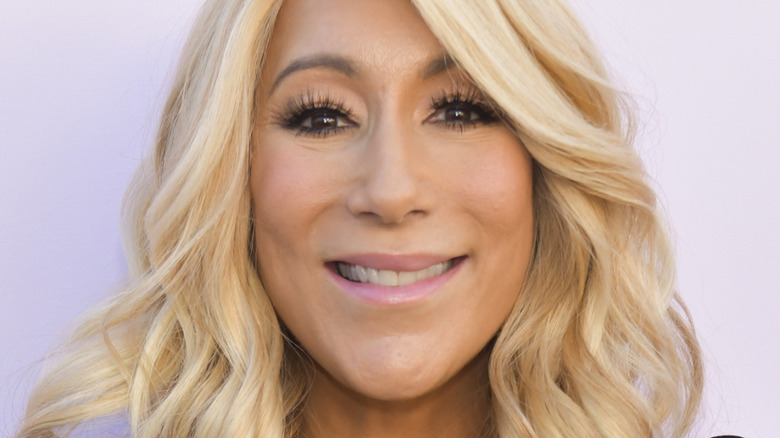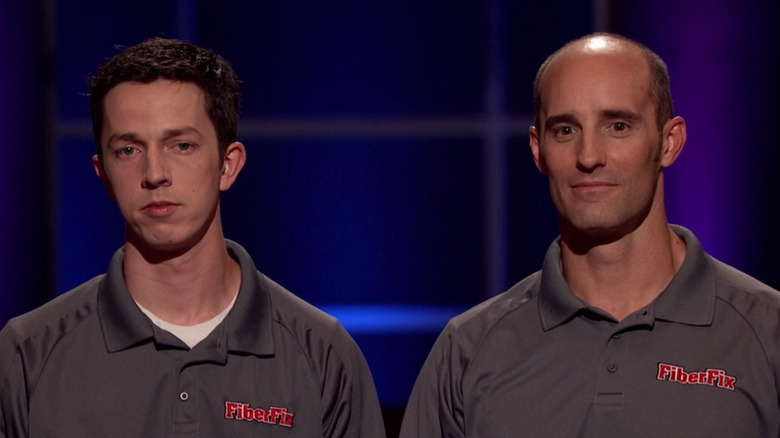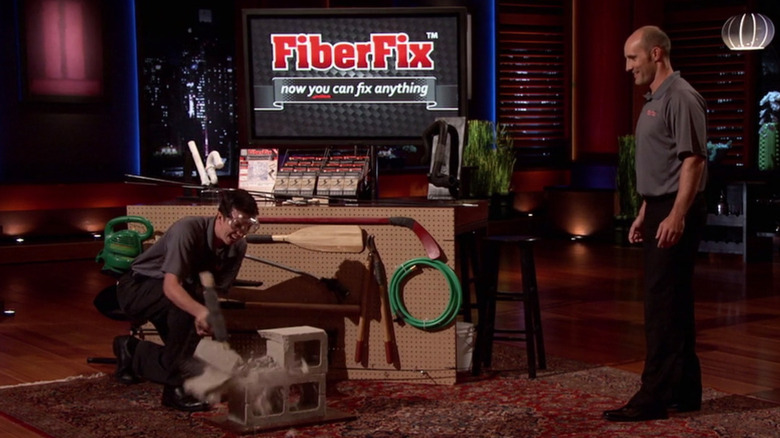Whatever Happened To FiberFix After Shark Tank?
The sharks on "Shark Tank" have seen all kinds of pitches in the show's 14-plus seasons. Some have been pretty out there as far as concepts go, like the Extreme Sandbox event company that lets people play with life-size construction equipment, or the Guzzle Buddy wine bottle attachment. But the sharks often respond most positively to products that are practical, like FiberFix.
Utahans Spencer Quinn and Eric Child went into the tank to pitch FiberFix in October 2013, during the show's fifth season. Simply put, FiberFix is an ultra-strong adhesive tape. Made from a specialized blend of resin and industrialized fibers, it's billed as being 100 times stronger than duct tape. You open the package, dip the FiberFix in water (while wearing gloves), wrap it around whatever needs repairing, wait five minutes to dry, and you're done. Quinn and Child demonstrated how they'd used FiberFix to repair several broken items, like a stool, tool handles, and a hockey stick. They were even able to build a hammer out of 2x2s and FiberFix, which was strong enough to smash through a cinder block.
Several of the sharks were interested, and here's how the ensuing negotiations played out.
FiberFix teamed up with QVC Queen Lori Greiner
Quinn and Childs' initial ask was for $90,000 in exchange for a 10% equity stake in their company. Kevin "Mr. Wonderful" O'Leary was most eager to make an offer, offering one of his typical royalty-sharing agreements–in this case, he offered $90,000 for no equity, but instead would have received 70 cents per item sold until the $90,000 was recouped, and then 20 cents in perpetuity. Robert Herjavec countered by offering Quinn and Child the same deal they originally asked for. Lori Greiner jumped in with an offer of $250,000 in exchange for an 18% equity stake. Herjavec then upped the ante by adding a $250,000 line of credit. Meanwhile, Mark Cuban and Daymond John declined to make offers.
After Herjavec's offer, Quinn and Child discussed their options and returned with a counter. Believing Greiner's QVC connections added value to their business, they offered her $120,000 for 12% of their company, along with a $2 million line of credit. Greiner refused the credit, and they settled for $120,000 for a 12% stake.
So, how is FiberFix doing now?
FiberFix is available at most retailers today
Quinn and Childs appeared on the show just months after they'd begun selling FiberFix. However, at the time of their appearance, they'd already sold more than $100,000 worth of product. It cost $2 to manufacture, while it wholesaled for $4 and retailed for $7.99. As Child explained, they were being sold at more than 400 independent retailers, and they'd just begun a vendor partnership with Home Depot. Most recently, they'd made a purchase order with Home Depot for a 240 store test. They had also recently received a purchase order from QVC.
The company continued to grow for the next five years and began offering more varieties: FiberFix, Heat Wrap, Rigid Patch, Flex Patch, and 10X Tape. In 2018, Texas-based JB-Weld Company purchased FiberFix's parent company, Spark Innovation, of which Eric Child was the CEO (this also meant the end of FiberFix's partnership with Lori Greiner). The deal included all of Spark's adhesive tape varieties as well. As Child noted in the press release announcing the sale, by this point FiberFix was available in more than 20,000 retail locations around the world (per PR News Wire).
The original FiberFix tape and its associated products are still available at nearly every major retailer. That makes it an unqualified "Shark Tank" success story.


